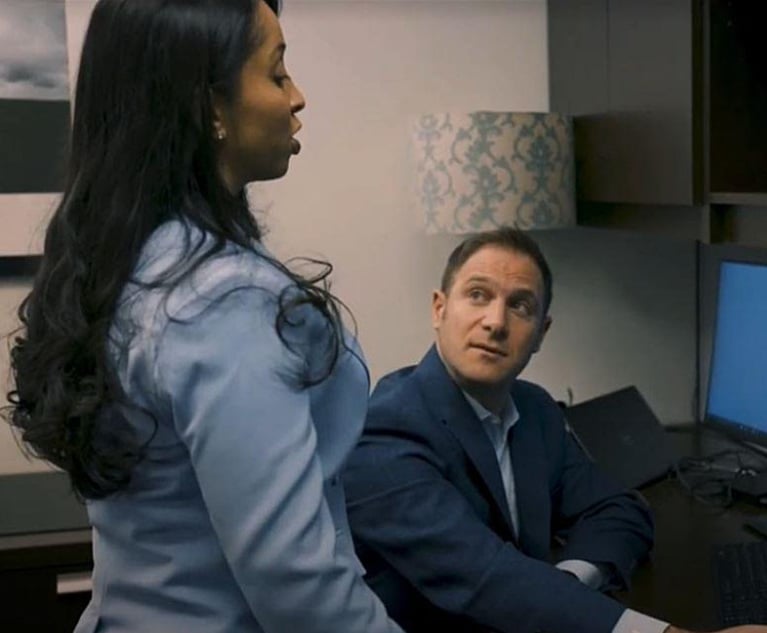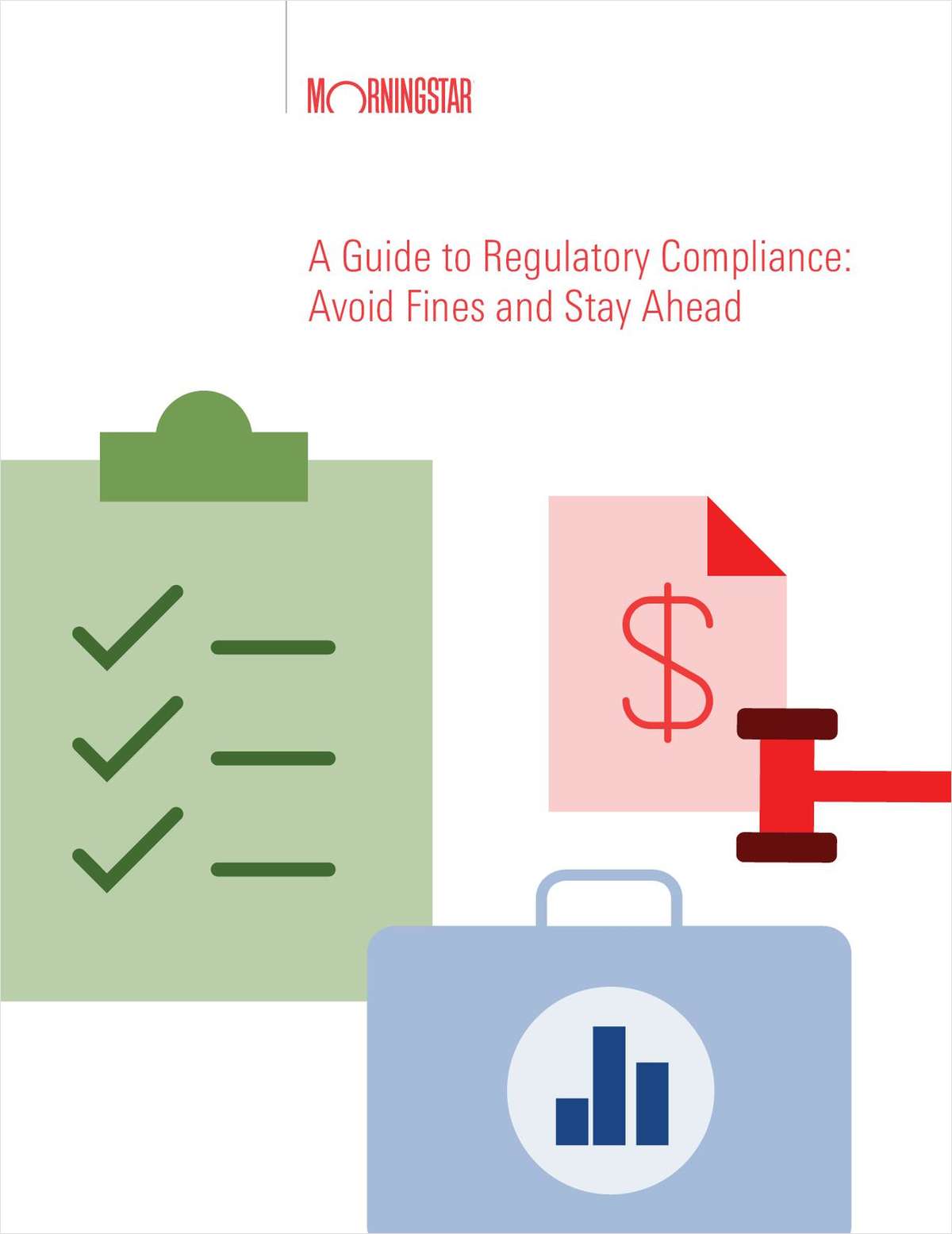Breaking Up Is Hard to Do: Withdrawing Representation
Terminating an attorney-client relationship is not an easy decision nor one that can be taken lightly.
April 26, 2018 at 10:33 AM
6 minute read

Terminating an attorney-client relationship is not an easy decision nor one that can be taken lightly. Ethical rules may govern a matter's early termination, in part to protect clients' interests. And attorneys in certain practice areas may need to exercise additional care to ensure they do not run afoul of the rules. Nevertheless, many attorneys can find themselves in a situation where the most positive outcome for themselves and their client is to end the relationship.
A preliminary consideration for attorneys in this scenario is whether the representation involves an ongoing litigation matter. In those cases, the court may be obligated to approve an attorney's withdrawal. Some courts may even require the withdrawing attorney to stay on the matter until sufficient replacement counsel can be found. On the other hand, in nonlitigation matters an attorney may only need to follow the ethical rules without regard for the court's rules.
Many attorneys will find that considering the following guidelines is a helpful step in ensuring they are not deemed to have ended the attorney-client relationship unethically.
Initial Termination
Connecticut Rule of Professional Conduct 1.16(b) provides that, “a lawyer may withdraw from representing a client if … withdrawal can be accomplished without material adverse effect on the interests of the client.” This type of withdrawal is generally referred to as permissive withdrawal.
There are six other bases that permit withdrawal under the rules, including if: “the client persists in a course of action involving the lawyer's services that the lawyer reasonably believes is criminal or fraudulent … the client has used the lawyer's services to perpetrate a crime or fraud … the client insists upon taking action that the lawyer considers repugnant or with which the lawyer has a fundamental disagreement … the client fails substantially to fulfill an obligation to the lawyer regarding the lawyer's services and has been given reasonable warning that the lawyer will withdraw unless the obligation is fulfilled … the representation will result in an unreasonable financial burden on the lawyer or has been rendered unreasonably difficult by the client … or other good cause for withdrawal exists.” Id. at (2)–(7). Notably, these circumstances do not require withdrawal, but simply permit it.
In determining whether withdrawal could have a material adverse effect on their client's interests, there are a number of factors to consider. These can include the matter's complexity, involvement of co-counsel (or lack thereof), and whether there are any upcoming deadlines that the client cannot reasonably meet with replacement counsel.
Many attorneys document the date and process of their withdrawal by letter. In that way, if there is a future dispute, the written correspondence can be a helpful tool in showing the attorney's good faith as well as detailing the grounds for withdrawal. The benefit of this approach is further underscored by the comment to Rule 1.16 providing that “[a] written statement to the client confirming the termination of the relationship and the basis of the termination reduces the possibility of misunderstanding the status of the relationship. The written statement should be sent to the client before or within a reasonable time after the termination of the relationship.”
Litigation attorneys may also be required to take additional steps to formally withdraw, in accordance with the rules of the court in which their action is pending.
Unique Considerations for Withdrawing in Litigation Matters
Withdrawing from an ongoing lawsuit can entail additional steps to ensure the client is not prejudiced in their case by the withdrawal. A review of the court's local rules and procedures concerning attorney withdrawal can help inform those obligations.
To safeguard their interests, many law firms will include in their standard engagement letters a withdrawal process that follows the local rules. Having a game plan can make it easier to follow the appropriate procedure when the time comes.
If an attorney is withdrawing and the client has already selected new counsel, the client may be able to file a simple notice of substitution. In such circumstances, the withdrawing attorney may not have to make any argument of fairness given that the client's interests are being represented without interruption.
Connecticut's federal court provides its own requirement for withdrawals of appearances. In that court, the withdrawal must be on motion, and “normally will not be granted except upon a showing that other counsel has appeared or that the party whose counsel seeks to withdraw may and has elected to proceed without counsel.” See D. Conn. L. Civ. R. 7(e). That rule also requires evidence that the client has received notice of the withdrawal.
Post-Termination Steps
The Connecticut Rules of Professional Conduct require lawyers to “take steps to the extent reasonably practicable to protect a client's interests” on termination of the attorney-client relationship. Rule 1.16(d). The rule provides that these steps include “reasonable notice” to the client, allowing time for employment of other counsel, and providing the client with her “papers and property,” including refunding of advance fee payments. Id.
Given the rules surrounding termination of the relationship and the potential ambiguities that can arise, many attorneys find it helpful to carefully document the representation's termination. Since the windup can cause a disgruntled attorney to feel even more aggrieved, it is important to proceed carefully. But by being cognizant of the ethical rules, attorneys can help ensure the final steps in the relationship do not create additional risk for them later.
Alanna G. Clair is a partner at Dentons US in Washington, D.C., and focuses on professional liability defense. Shari L. Klevens is a partner at Dentons US in Atlanta and Washington, D.C., and serves on the firm's U.S. board of directors. She represents and advises lawyers and insurers on complex claims and is co-chairwoman of Dentons' global insurance sector team. Klevens and Clair are co-authors of “The Lawyer's Handbook: Ethics Compliance and Claim Avoidance.”
This content has been archived. It is available through our partners, LexisNexis® and Bloomberg Law.
To view this content, please continue to their sites.
Not a Lexis Subscriber?
Subscribe Now
Not a Bloomberg Law Subscriber?
Subscribe Now
NOT FOR REPRINT
© 2025 ALM Global, LLC, All Rights Reserved. Request academic re-use from www.copyright.com. All other uses, submit a request to [email protected]. For more information visit Asset & Logo Licensing.
You Might Like
View All
Connecticut's Wiggin and Dana Absorbs Boca Raton Trusts and Estates Boutique
3 minute read
Law Firm Leaders Say Gen AI Can Level Playing Field Between Large and Smaller Firms
6 minute read
Revenue Up 11.2%, PEP Up 22.1% at Akin, as Aggressive Hiring Pays Off
5 minute read
New England's Hinckley Allen Expands Southward, Opening 7th Office in Fort Lauderdale
2 minute readTrending Stories
Who Got The Work
Michael G. Bongiorno, Andrew Scott Dulberg and Elizabeth E. Driscoll from Wilmer Cutler Pickering Hale and Dorr have stepped in to represent Symbotic Inc., an A.I.-enabled technology platform that focuses on increasing supply chain efficiency, and other defendants in a pending shareholder derivative lawsuit. The case, filed Oct. 2 in Massachusetts District Court by the Brown Law Firm on behalf of Stephen Austen, accuses certain officers and directors of misleading investors in regard to Symbotic's potential for margin growth by failing to disclose that the company was not equipped to timely deploy its systems or manage expenses through project delays. The case, assigned to U.S. District Judge Nathaniel M. Gorton, is 1:24-cv-12522, Austen v. Cohen et al.
Who Got The Work
Edmund Polubinski and Marie Killmond of Davis Polk & Wardwell have entered appearances for data platform software development company MongoDB and other defendants in a pending shareholder derivative lawsuit. The action, filed Oct. 7 in New York Southern District Court by the Brown Law Firm, accuses the company's directors and/or officers of falsely expressing confidence in the company’s restructuring of its sales incentive plan and downplaying the severity of decreases in its upfront commitments. The case is 1:24-cv-07594, Roy v. Ittycheria et al.
Who Got The Work
Amy O. Bruchs and Kurt F. Ellison of Michael Best & Friedrich have entered appearances for Epic Systems Corp. in a pending employment discrimination lawsuit. The suit was filed Sept. 7 in Wisconsin Western District Court by Levine Eisberner LLC and Siri & Glimstad on behalf of a project manager who claims that he was wrongfully terminated after applying for a religious exemption to the defendant's COVID-19 vaccine mandate. The case, assigned to U.S. Magistrate Judge Anita Marie Boor, is 3:24-cv-00630, Secker, Nathan v. Epic Systems Corporation.
Who Got The Work
David X. Sullivan, Thomas J. Finn and Gregory A. Hall from McCarter & English have entered appearances for Sunrun Installation Services in a pending civil rights lawsuit. The complaint was filed Sept. 4 in Connecticut District Court by attorney Robert M. Berke on behalf of former employee George Edward Steins, who was arrested and charged with employing an unregistered home improvement salesperson. The complaint alleges that had Sunrun informed the Connecticut Department of Consumer Protection that the plaintiff's employment had ended in 2017 and that he no longer held Sunrun's home improvement contractor license, he would not have been hit with charges, which were dismissed in May 2024. The case, assigned to U.S. District Judge Jeffrey A. Meyer, is 3:24-cv-01423, Steins v. Sunrun, Inc. et al.
Who Got The Work
Greenberg Traurig shareholder Joshua L. Raskin has entered an appearance for boohoo.com UK Ltd. in a pending patent infringement lawsuit. The suit, filed Sept. 3 in Texas Eastern District Court by Rozier Hardt McDonough on behalf of Alto Dynamics, asserts five patents related to an online shopping platform. The case, assigned to U.S. District Judge Rodney Gilstrap, is 2:24-cv-00719, Alto Dynamics, LLC v. boohoo.com UK Limited.
Featured Firms
Law Offices of Gary Martin Hays & Associates, P.C.
(470) 294-1674
Law Offices of Mark E. Salomone
(857) 444-6468
Smith & Hassler
(713) 739-1250










